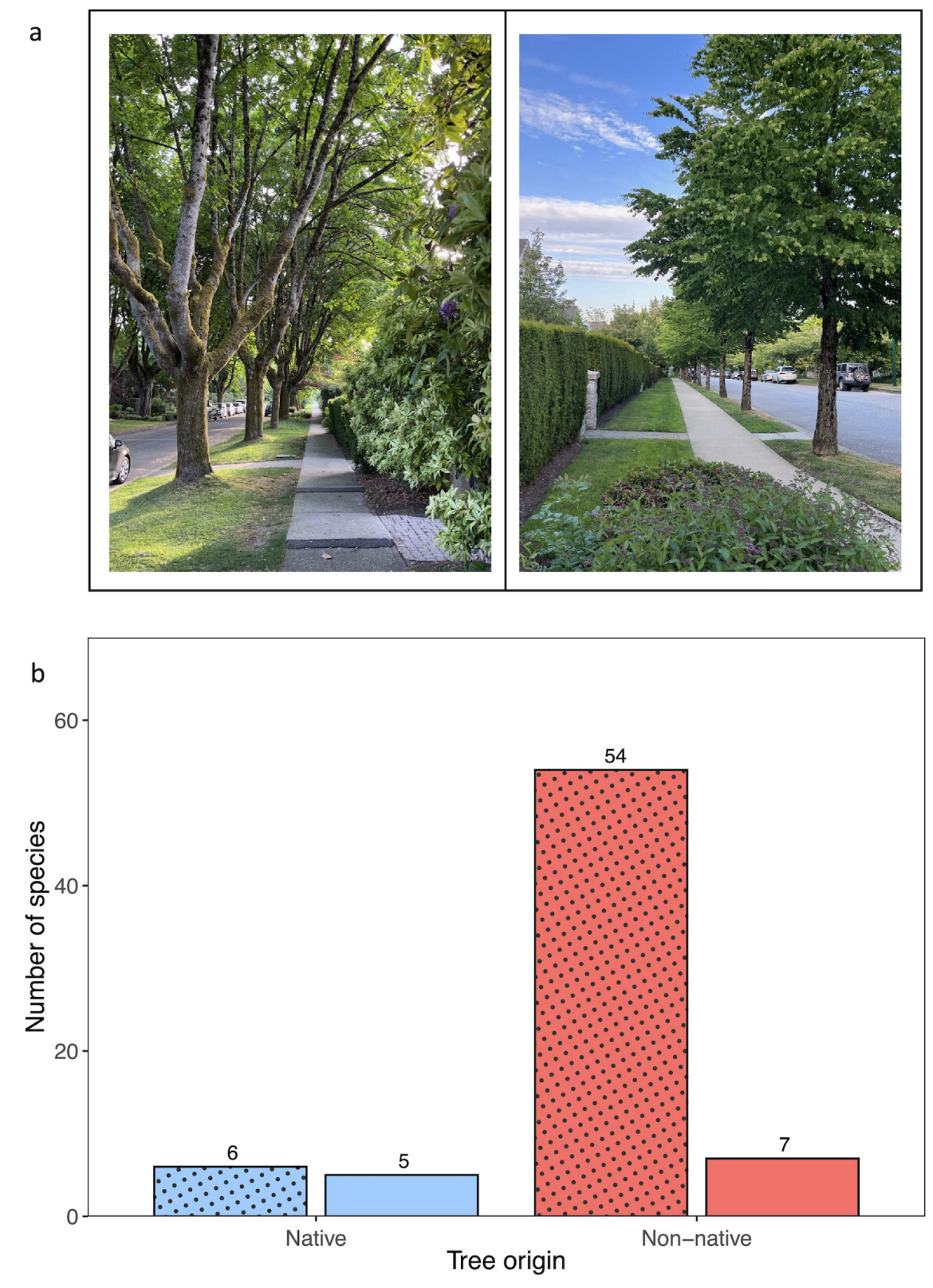CBC News, July 15, 2024 - Butterfly sightings in Metro Vancouver plummet
UBC News, June 25 - The mystery of the missing butterflies in Vancouver
____________
Originally posted June 10, 2024
Abstract
The triple threats of climate change, habitat loss, and environmental pollution have stimulated discussion on how urban areas can be modified to mitigate heat increases and provide habitat for wildlife such as insects. The strategy of using trees to reduce temperatures has been adopted by numerous cities. However, the majority of street trees planted around the world are non-native. Studies conducted in non-urban areas have demonstrated in comparison to native plants, non-native plants are less likely to support native insect diversity. Here, we use a database approach to quantify the number of native Lepidoptera species associated with 76 of the most common street tree species planted in Vancouver, Canada. We tested the prediction that compared to non-native trees, native street trees will support a higher diversity and unique community of native Lepidoptera. As predicted, native street trees were associated with five times as many native Lepidoptera species, and the Lepidoptera communities supported by native versus non-native street trees were distinct. There was no difference in native Lepidoptera associations between broadleaf versus coniferous street trees. These results are consistent with studies that have used active sampling techniques to investigate insect richness on a smaller subset of native and non-native tree species. Collectively, these data provide good evidence that planting native instead of non-native trees will help stem the loss of insect diversity in urban areas.
